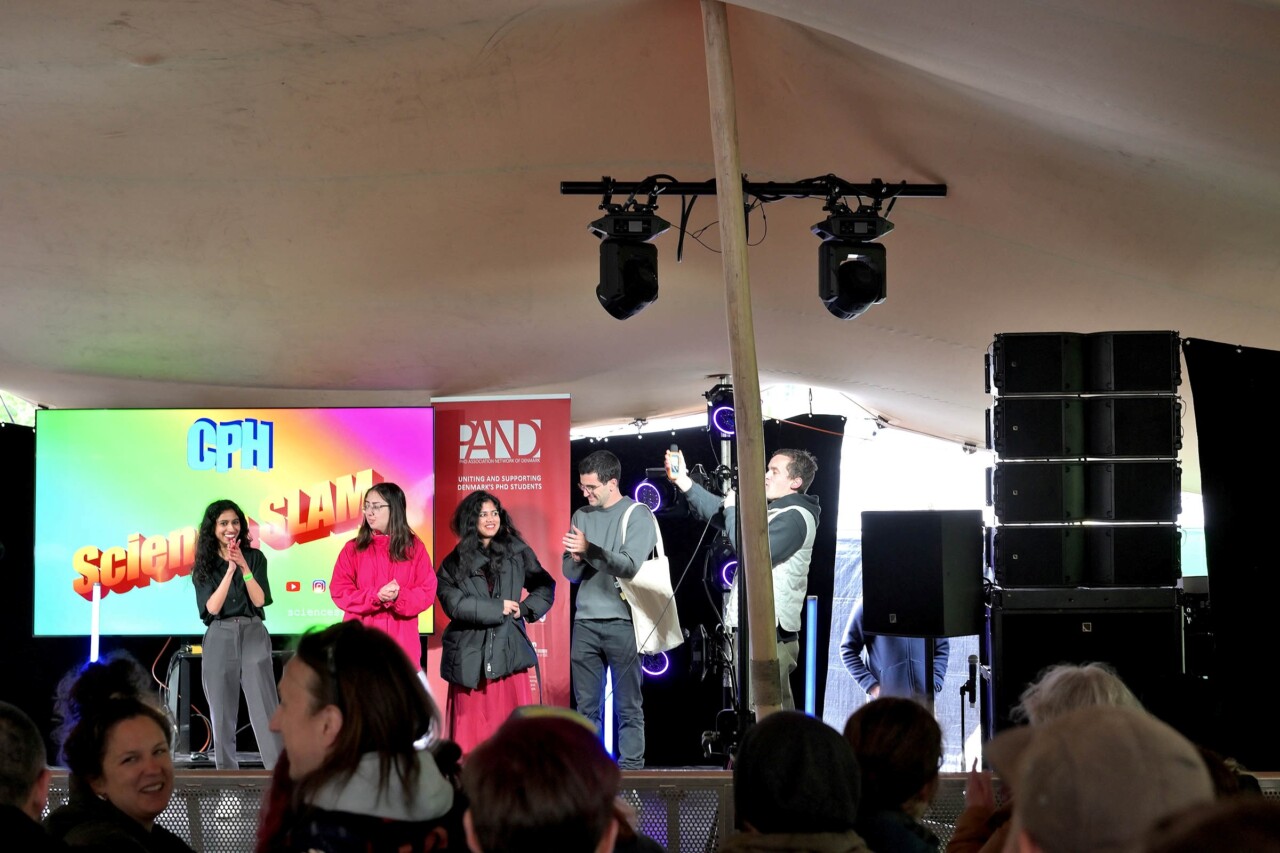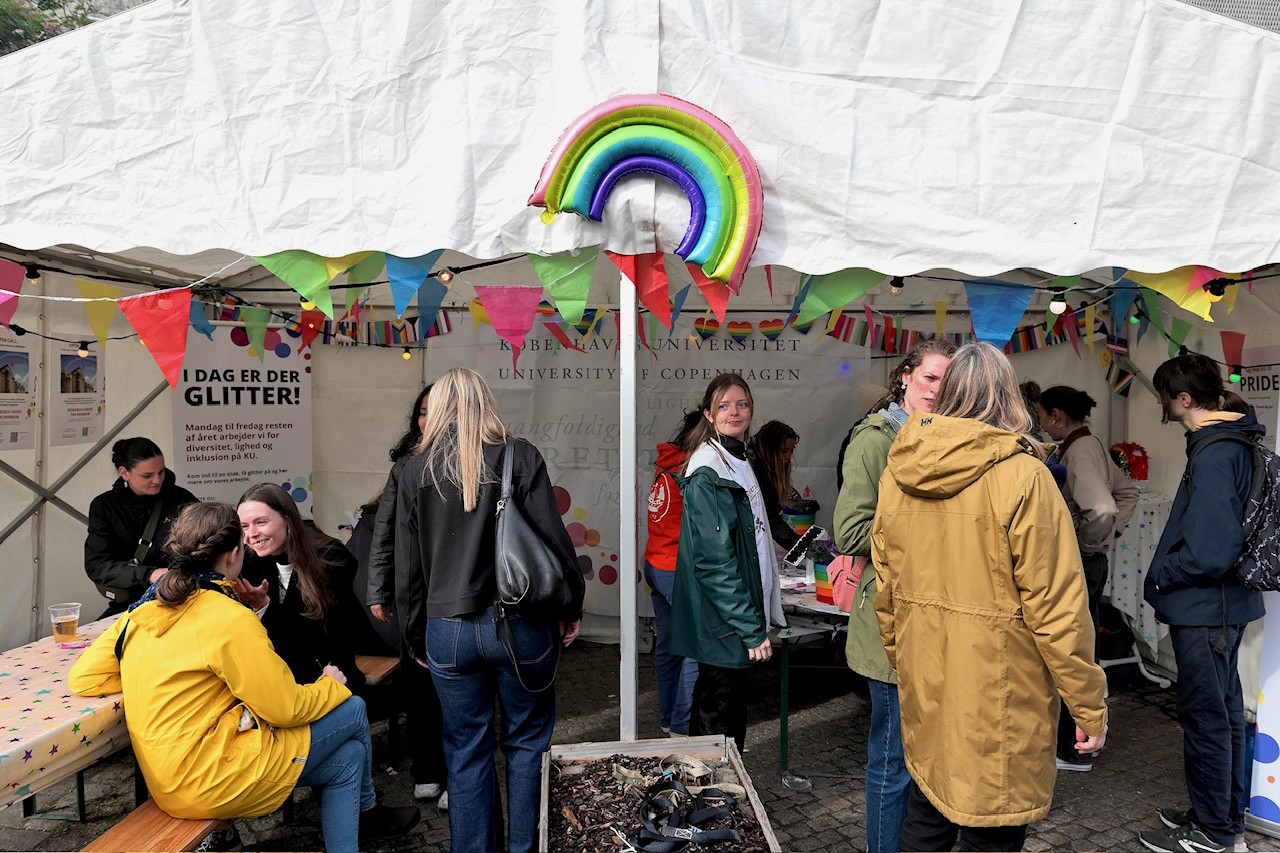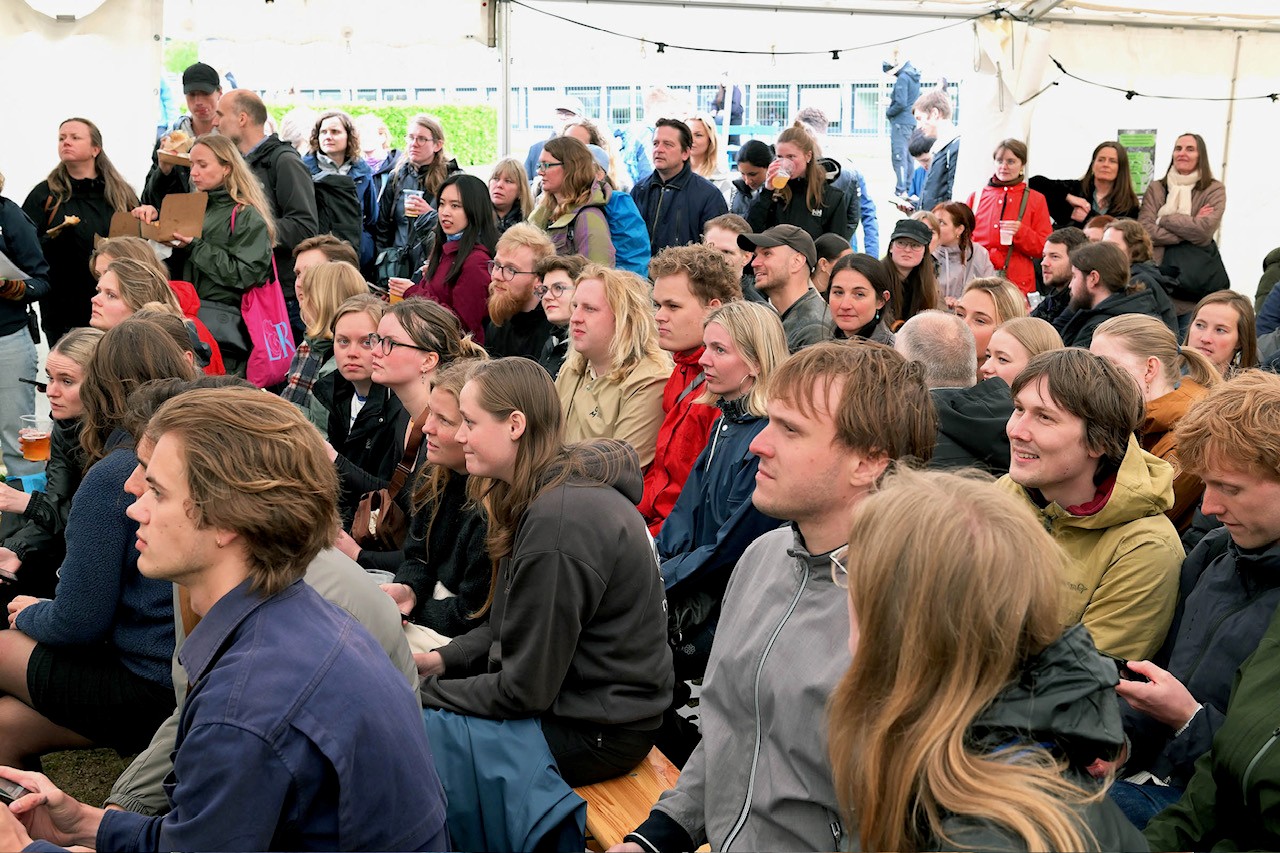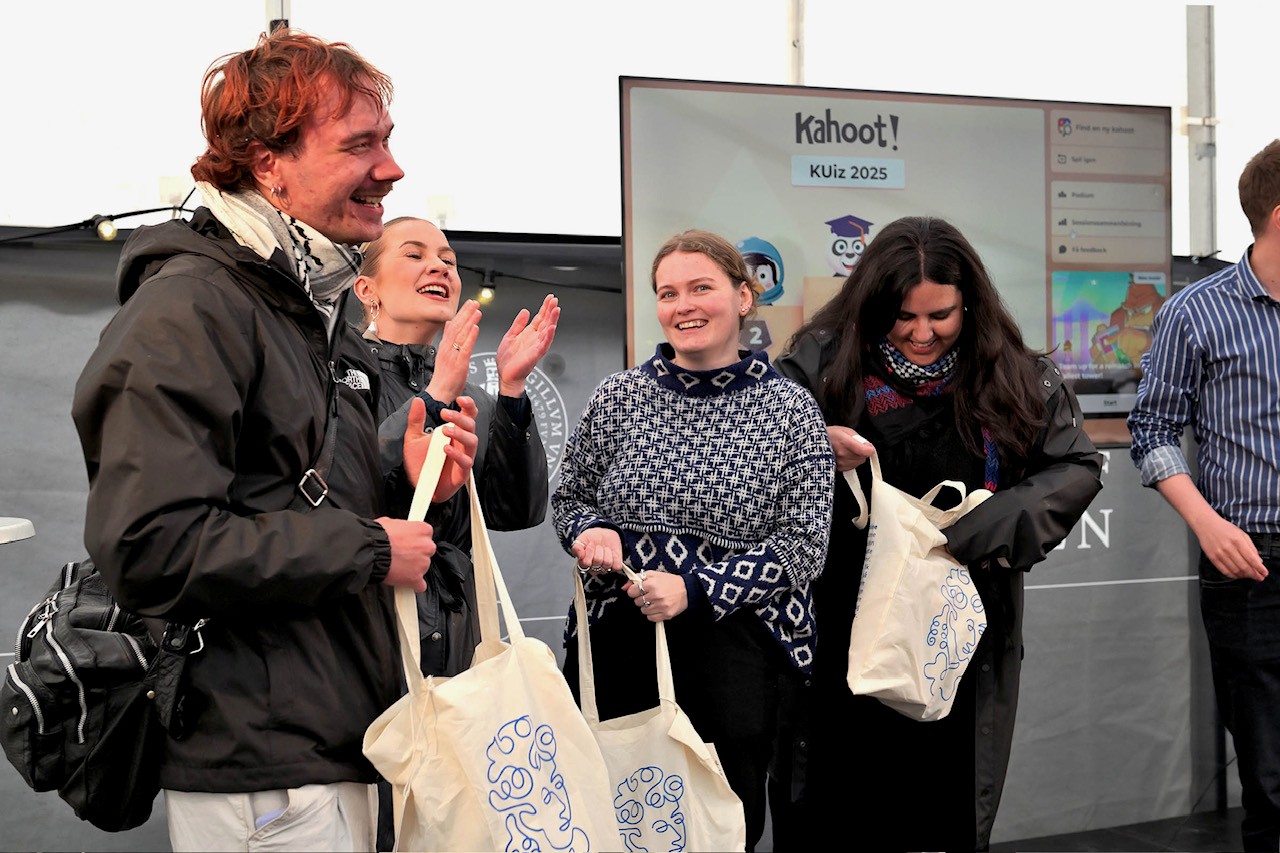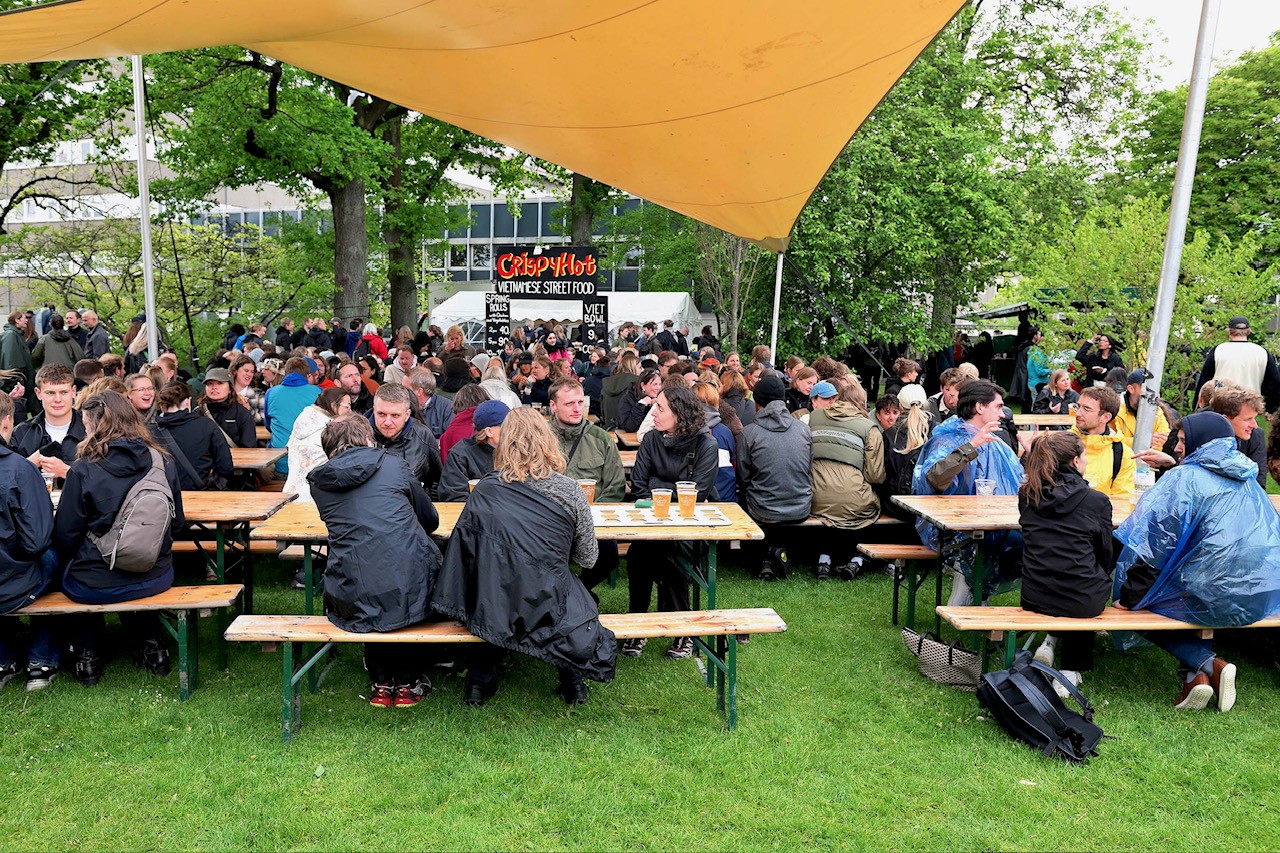Universitetsavisen
Nørregade 10
1165 København K
Tlf: 35 32 28 98 (mon-thurs)
E-mail: uni-avis@adm.ku.dk
—
Campus
Community — Despite pouring rain, 15,000 turned up for this year’s UCPH Festival to celebrate the arrival of women at the university — and to see one woman in particular on stage.
15,000 students and staff defied the chilly spring weather on Friday 23 May for this year’s KU Festival, the festival for University of Copenhagen (UCPH) students and staff.
With the help of 300 staff and student volunteers, the Universitetsparken — normally home to the Faculty of Science — was transformed into a festive meeting place across all faculties.
And while 9,000 litres of cold draught beer were poured out in vast quantities, and the aromas from food stalls whetted the appetite, the festival’s tents offered entertainment for every taste, from cider tastings, to talks, to a karaoke party.
This year, several members of university management took part in performances — the prorector for education acted as host, deans debated, and the university director took to the stage as a casual jazz pianist.
Exactly 150 years ago, the University of Copenhagen admitted its first female students into its previously male-dominated lecture halls. This is being celebrated by UCPH this year — and it was the theme of this year’s festival.
All tents and stages were named after the university’s most prominent women: They included seismologist Inge Lehmann who discovered that the Earth had a solid core, Nielsine Nielsen, the first female student and Danish female doctor, and Astrid Friis, Denmark’s first female professor who did research on the interplay between politics and economics. And inclusive talks focused on topics like desire and equality.
»I think it was great that we could incorporate this story into the festival,« says Jacob Ørum, director of the Studenterhuset café and co-organizer, and continues:
»And I hope it sparked some curiosity, even if you might wonder how much you reflect on the fact that you’re standing in front of the ‘Lehmann’ stage at one o’clock in the morning,« he says.
Although this year’s music line-up was scaled back in favour of more debates to sharpen the focus on the festival’s theme, Jacob Ørum explains, it didn’t stop the musical headline act from drawing the biggest crowd in the festival’s history.
It was time for a rain dance when the Danish pop star Medina took the stage at 6 PM and brought the house down.
»We’ve never had as many people in front of the stage as we did for Medina. And they were dancing in the rain all the way to the middle of the square,« says Jacob Ørum, adding that the bar near the stage had its lowest sales ever — simply because no one could get to it through the dancing crowd.
And if you found yourself in the midst of the roaring fans, there was no doubt: every current UCPH student has grown up to the sound of Medina’s music.
»There aren’t many names that can bring people together like she can. So that was a booking we were really pleased with,« says Jacob Ørum.
The festival has cost UCPH around DKK 2 million, excluding income from drinks and sponsorships. But it is worth every penny, says Jacob Ørum:
»When we organised the first festival in 2014, it was the first time in over 100 years that everyone at UCPH was invited to the same event. And this is by far the cheapest way to invite the entire university,« he says.
On a daily basis, students and staff hardly notice how diverse UCPH actually is — or that its population is comparable to a small Danish town:
»The festival brings together everyone from the humanities to the natural sciences, from South Campus to Frederiksberg, and from first-year students to emeritus professors across the board,« says Jacob Ørum, pointing out that the festival fosters both new communities, research projects, and interdisciplinary romances.
UCPH has an ongoing focus on making the festival more sustainable. Last year, beef was completely removed from the menu, and since then the proportion of meat in the food stalls has been further reduced.
»We haven’t quite managed to find a replacement for the roast pork sandwich. But otherwise, there’s only fish or vegetarian food on the menu,« says Jacob Ørum, who also mentions that one of the planned fish stalls never made it to the festival.
The soft disposable plastic cups were also carefully selected in favour of the hard, reusable ones. These turn out to be more sustainable — as long as they are collected for recycling, which the organisers ensure. In addition, all electricity now comes from UCPH itself instead of the diesel generators used in previous years, according to Jacob Ørum.
Cleared of rubbish, and rain-soaked-but-happy festivalgoers, North Campus looked like its old self again when students showed up for exam prep on the morning of Monday 26 May.
And if you’re already looking forward to next year, be sure to mark your calendar for Friday 8 May 2026, when the lawn will once again be prepped for the twelfth edition of fun and festivities.
